Giving gifts in Japan is an art form deep-rooted in history and tradition. As with most cultures, gifts are given to show appreciation and mark a momentous occasion.
Japanese culture does not just place importance on the content of the gift and what types of gifts are appropriate for different occasions, but they also believe that the way a gift is presented is also significant.
Etiquette For Giving A Gift
When presenting a gift to somebody, you should extend the present to them with both of your hands. Even if the item you are giving is small, using both hands is considered to be respectful.
Etiquette For Receiving A Gift
While you might feel inclined to excitedly grab your gift from the giver, it’s not considered polite to just take it. The proper etiquette is to nicely attempt to refuse the gift. It is expected that you do this at least three times before thankfully receiving the gift.
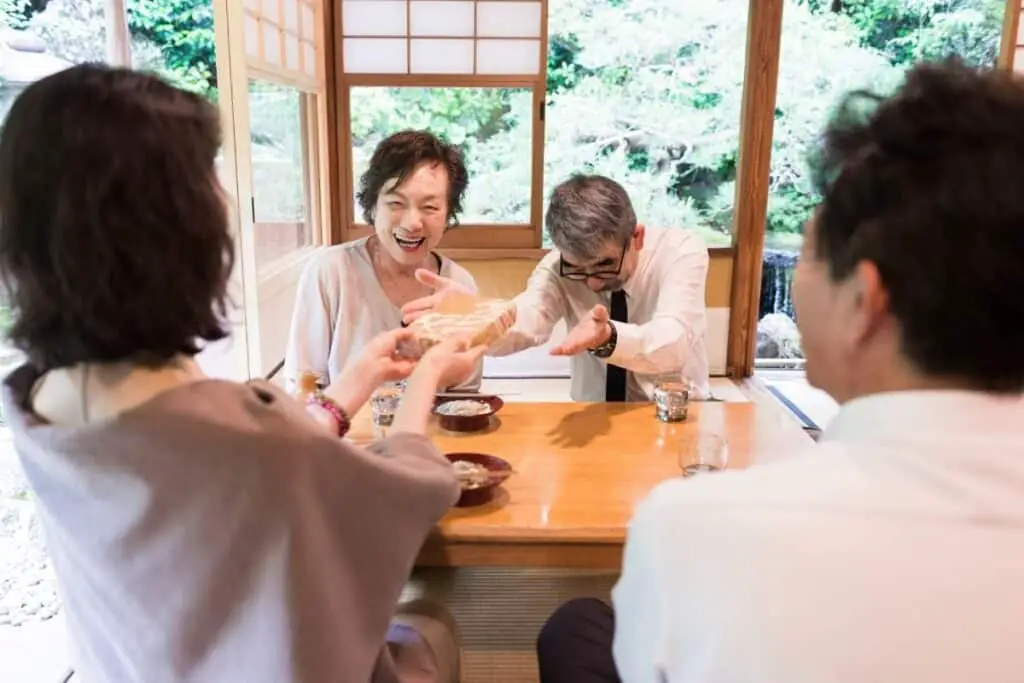
When you’re at the point where you are ready to receive the gift, you want to take the gift from the giver with both hands. Using both hands is considered to be a sign of respect.
Group Events
If you know that you are going to be in a large group of people, but you are only intending on giving a gift to one person, it is not considered polite to present the gift in front of the entire group.
You either want to take the person aside or present the gift before others arrive or after the event is over.
Similarly, it’s not considered polite for the receiver to then open their present in front of everyone in the group.

Business Meetings And Events
In a professional setting, it is customary to give and receive presents during certain occasions. If you are participating in one of these occasions, you want to wait until the end of the meeting to present your gift to the receiver.
If you do it right at the beginning, it’s assumed that you are trying to get out of the meeting as quickly as possible. Therefore, it’s considered rude.

There are many rules regarding how and when to give gifts during business dealings in Japan. For example, when meeting a client or potential business partner for the first time, it is expected that you will bring a gift.
While some businesses in other parts of the world may consider gifts, especially expensive gifts, a bribe, no one in Japan will interpret a gift in a professional setting that way.
Mind Your Numbers
Anyone who knows even just a little bit about Japanese culture and tradition will know that they hold numbers in great importance. There are numbers that are considered to be bad luck. Therefore, you want to be mindful of these superstitions when planning out a gift.
For example, giving multiple gifts to someone needs to be done very carefully. You can opt to give someone two gifts, as that is considered to be giving them luck as well. If you want to give someone more than one gift, be sure to also not give someone four or nine gifts, as those numbers are also unlucky.

When gifting someone with money, count it carefully to make sure you are giving them an odd number of dollars.
This is especially crucial when gifting money as a wedding present. It is believed that gifting an even amount of yen could have the couple splitting the funds, thus bringing about a split in their union.
Gift Wrapping Etiquette
You want to take care when wrapping a present to give in Japan. Presentation is admired in Japanese culture, and it will also show the receiver that your gift comes with a lot of thought.
The color that you use for whatever material you are wrapping your present in matters. You’re safe going with a light, pastel color for wrapping a present.
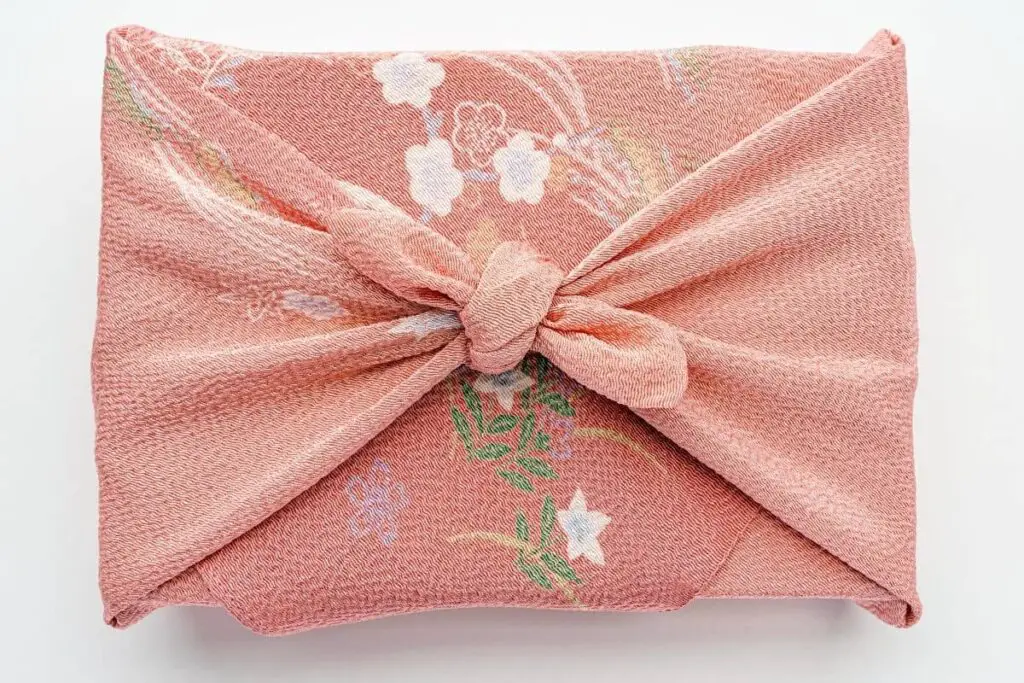
Bright colors and patterns are considered too flamboyant. Red is also to be avoided, as the color is reminiscent of funerals or sexuality.
Furoshiki
You will see many methods of common gift wrapping in Japan, including paper, as well as decorations such as ribbons. However, in Japan, they commonly use materials such as cloth and fabrics to wrap their presents in beautiful ways.
This method is called furoshiki, and it comes from an old tradition of using bath spreads or towels to wrap a bather’s clothes. This also reduces the waste that comes with wrapping presents in materials that cannot be reused.

Ochugen
Ochugen is one of the two main gift-giving events celebrated in Japan. This takes place in summer. People give gifts to each other during this time in order to show each other their appreciation.
Oseibo
Osiebo is celebrated in December, and people give gifts to each other as a symbol of responsibility and duty to each other.
There is a custom in Japan called giri, which symbolizes one’s duty to others, and this is witnessed during this occasion.
Omiyage
Omiyage is the tradition of giving gifts to your close loved ones and coworkers after you have traveled somewhere. These could be things like souvenirs from the country you were visiting.
This is a tradition that can be traced back centuries to the Edo period. This is when travel was much more arduous than it is now, and only a few people could afford to do so.
These people would bring back small presents for the other villagers who were not able to travel as liberally.
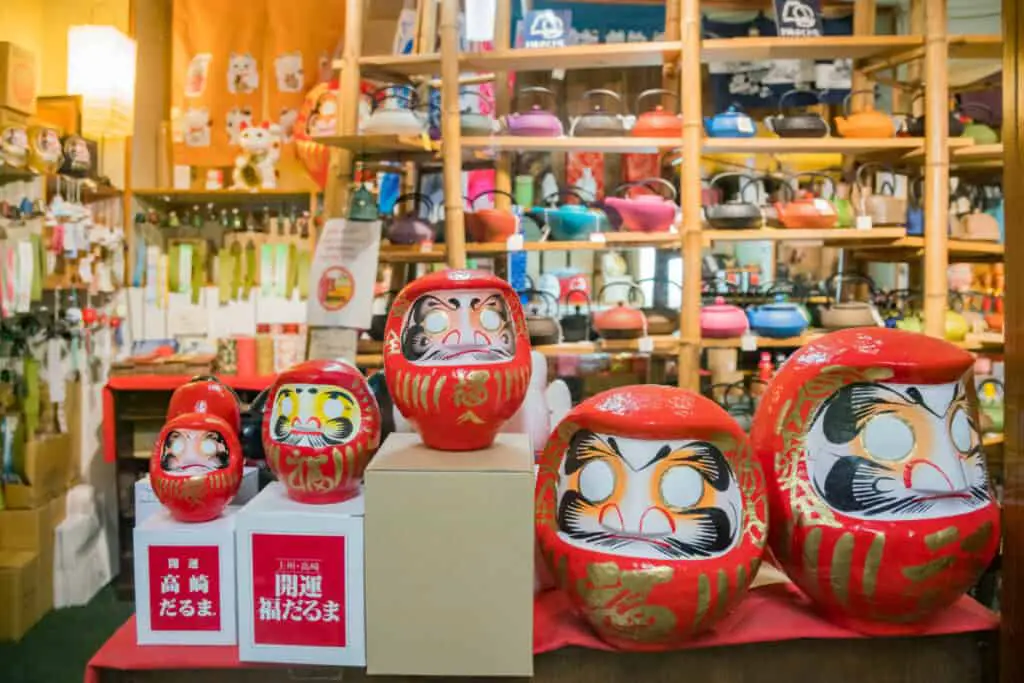
O-kaeshi
The tradition of o-kaeshi surrounds giving gifts to say thank you. These gifts are typically given after you have been presented with a gift during a momentous occasion, such as a wedding. These gifts tend to be much smaller than the original gift.
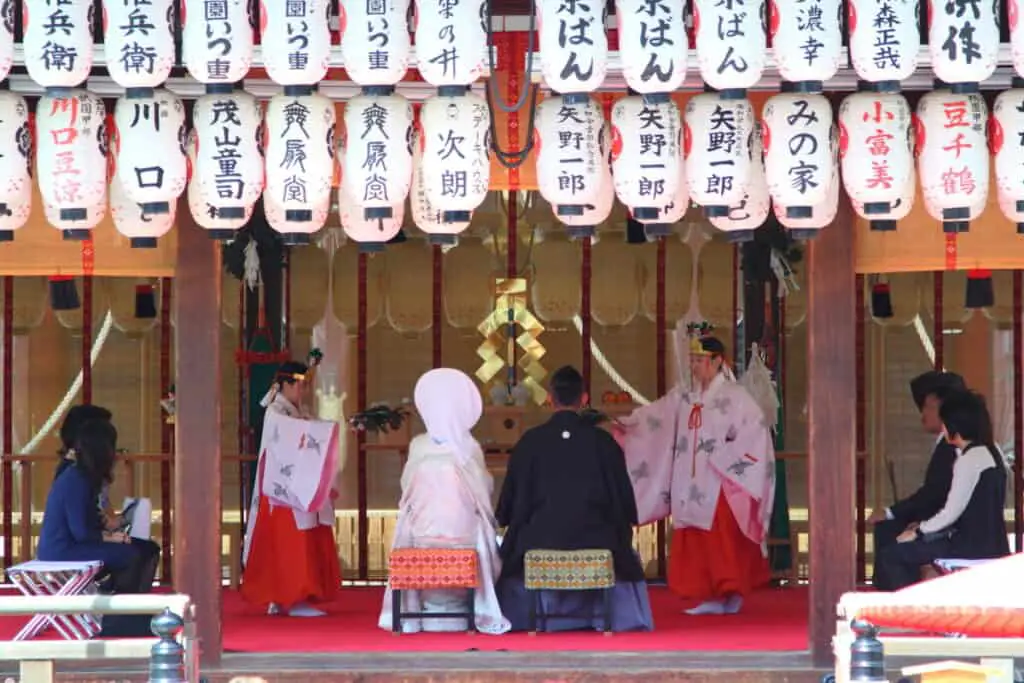
Temiyage
Temiyage is a gifting tradition that is also representative of giving thanks. This tradition revolves around thank-you gifts that you will present when visiting someone, or a gift you might receive when you host someone in your home.
It is not necessarily expected that you must bring a gift when visiting someone, but it is considered proper etiquette to do so. These gifts are usually somewhat small and maybe a snack or sweet that your host can enjoy with you.
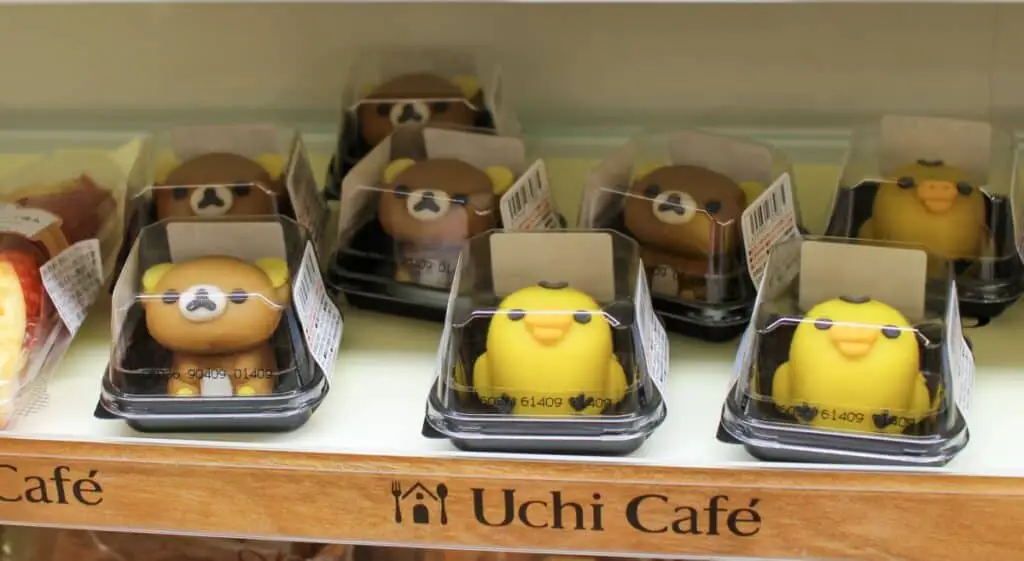
If you are visiting from outside of Japan, it would make your host very happy if you were to present them with something representing your own culture.
Valentine’s Day And Reply Day
There is a unique tradition surrounding Valentine’s Day. While Western culture tends to focus on women receiving elaborate gifts on Valentine’s Day, in Japan, it is actually women who gift chocolates to men on this day.
Japanese tend to give the most expensive or fancy chocolates to their partner.
On March 14th, one month after Valentine’s Day is when white Day occurs. This is when men will give the woman in their life a gift that is considered three times the value of what they received on Valentine’s Day.

Other Western Holidays And Gift Giving Days
While every culture celebrates different holidays, some holidays where Western cultures are used to exchanging gifts are during birthdays and Christmas.
These two occasions are not considered gift-giving days in Japan. Some people have started exchanging gifts on Christmas, but it’s one of those things that hasn’t caught on all throughout Japan yet.










